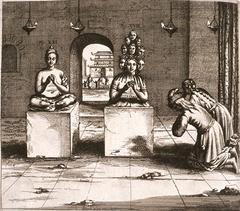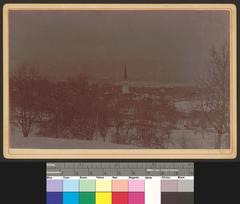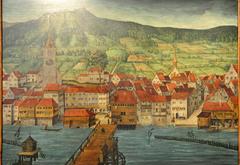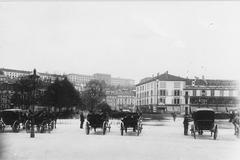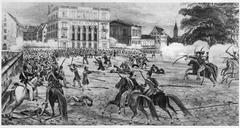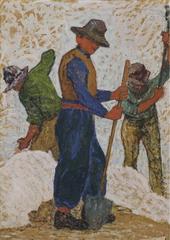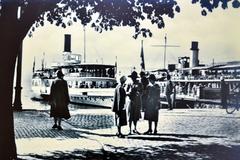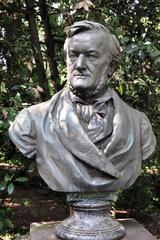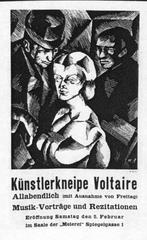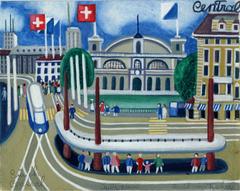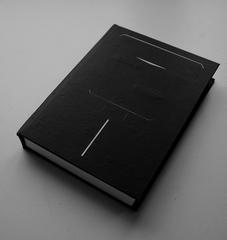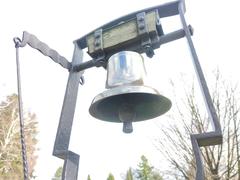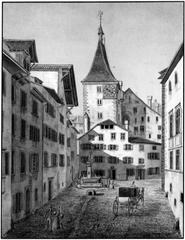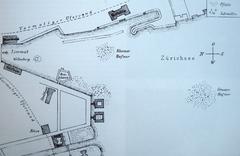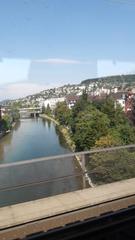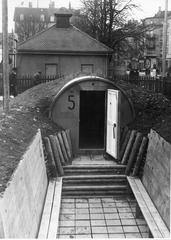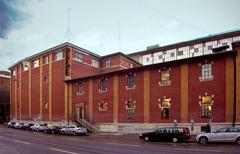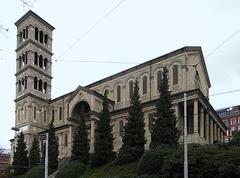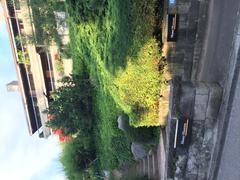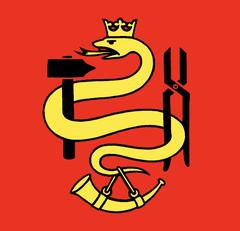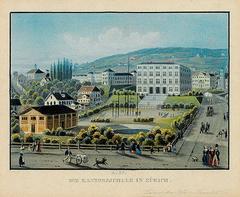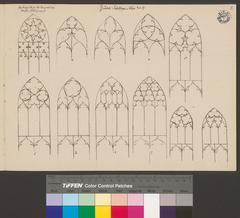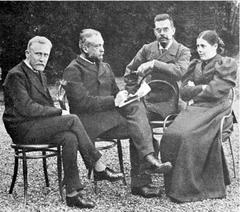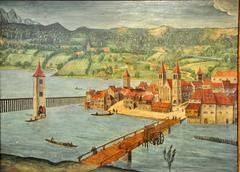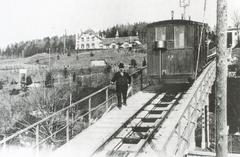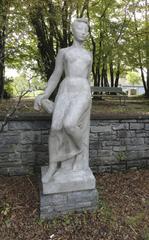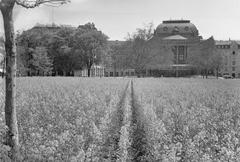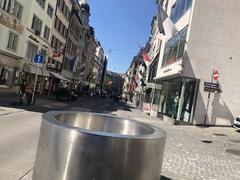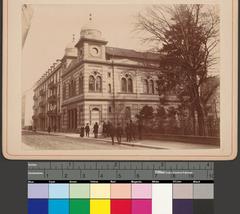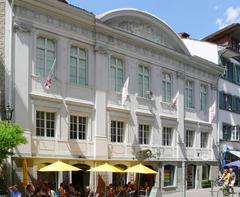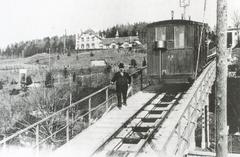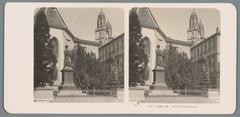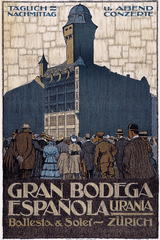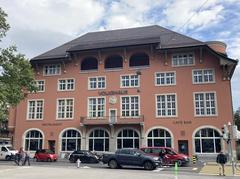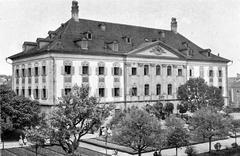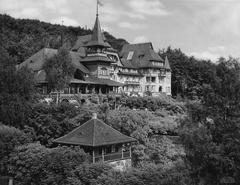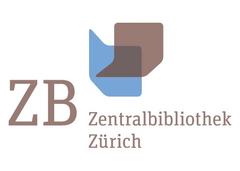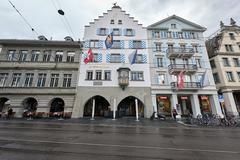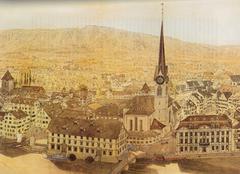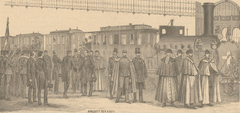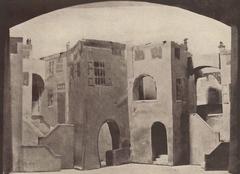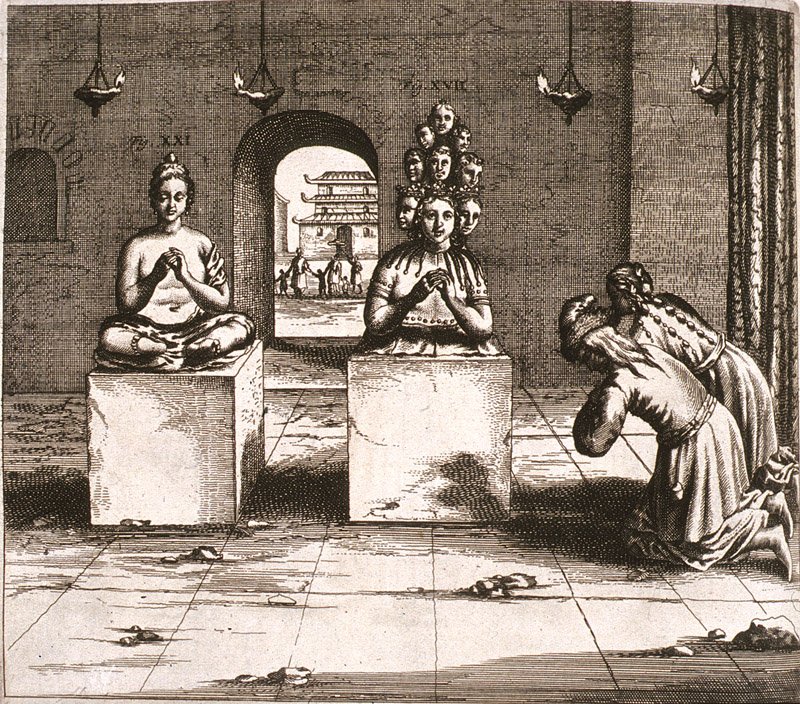
Ethnographic Museum of the University of Zurich: Visiting Hours, Tickets, and Visitor Guide
Date: 14/06/2025
Introduction: A Window Into the World’s Cultures
Centrally located in Zürich’s vibrant cultural district, the Ethnographic Museum of the University of Zurich (Ethnografisches Museum der Universität Zürich, EMUZ) is one of Switzerland’s oldest and most distinguished ethnological institutions. Founded in 1889, the museum has assembled a collection of over 40,000 artifacts, spanning continents and centuries—from Africa and Oceania to the Americas, Asia, and Europe. EMUZ is both an academic resource for the University of Zurich and an accessible public space, dedicated to fostering understanding and appreciation of global cultural heritage and ethnographic research.
Visitors can experience thoughtfully curated exhibitions that illuminate the artistic, spiritual, and social dimensions of human societies. The museum’s commitment to responsible and collaborative curation—in partnership with source communities—enriches its displays and underlines the ethical considerations behind each object. In addition to physical exhibitions, EMUZ provides extensive multimedia archives, including historical photographs, ethnographic films, and sound recordings, immersing visitors in the world of anthropological research and preservation.
Strategically positioned at Pelikanstrasse 40, the museum is easily reached via public transportation and is fully accessible to visitors with mobility needs. Admission is generally free, reflecting the institution’s mission to make cultural knowledge widely available; select special exhibitions may require tickets. Enhance your visit with guided tours, educational programs, and digital resources, including virtual tours and the Audiala app.
This comprehensive guide details visiting hours, ticketing, highlights, accessibility, and practical tips—plus recommendations for nearby Zürich attractions. Embark on a journey through the world’s cultures at the Ethnographic Museum of the University of Zurich. (UZH Museum History, Trek Zone, UZH Collections)
Quick Reference: Contents
- Introduction & Museum Overview
- Historical Evolution
- Visiting Information (Hours, Tickets, Location, Accessibility)
- Guided Tours & Programs
- Highlights of the Collections
- Exhibitions (Permanent, Temporary, Multimedia)
- Public & Educational Programs
- Ethical Curation
- Travel Tips & Nearby Zurich Attractions
- FAQ
- Plan Your Visit & Stay Connected
- Sources and Further Reading
Historical Overview: From Founding to Academic Integration
Founding and Early Development
Established in 1889, EMUZ is Switzerland’s third-oldest ethnographic museum, created during a period of increased academic interest in non-European cultures (UZH Museum History). Early collections, gathered by Swiss explorers and missionaries, focused on Africa, Oceania, and the Americas. The museum’s first director, Professor Arnold von Gennep, emphasized contextualizing objects within their cultural origins.
Expansion and Academic Role
Throughout the 20th century, the museum’s collections grew through fieldwork and donations, surpassing 30,000 objects by the 1950s (UZH Collection Overview). Integration with the Institute of Social Anthropology and Empirical Cultural Studies in the 1970s strengthened its educational and research missions.
Architectural Evolution
Initially located on Rämistrasse, the museum moved to its current site at Pelikanstrasse 40 in 1979 (UZH Museum Location). A major refurbishment in 2014 introduced state-of-the-art lighting, interactive media, and sustainability features while preserving the historic neoclassical architecture (UZH Museum Renovation).
Visiting the Museum: Hours, Tickets, and Accessibility
Location
- Address: Pelikanstrasse 40, 8001 Zürich, Switzerland
- Getting There:
- 10-minute walk from Zürich Hauptbahnhof (main train station)
- Served by tram lines 4, 6, 7, 10, and 15; nearest stops: Bahnhof Selnau or ETH/Universitätsspital
- Accessible by several bus lines; limited nearby parking (Ethnographic Museum at the University of Zurich)
Opening Hours
- Tuesday, Wednesday, Friday: 10:00–17:00
- Thursday: 10:00–19:00
- Saturday: 14:00–17:00
- Sunday: 11:00–17:00
- Monday: Closed
Check the official website for updates and holiday hours.
Admission & Tickets
- General Admission: Free
- Special Exhibitions: May require a ticket fee (details online or at reception)
- Discounts: Students, seniors, and university affiliates may receive discounts for special events or guided tours
Accessibility
- Wheelchair Accessible: Ramps, elevators, and accessible restrooms
- Assistance: Contact the museum for tailored visits or accessibility needs
- Virtual Access: Digital and 360° virtual tours available on the museum website (UZH)
Visitor Services and Facilities
- Cloakroom & Lockers: Available for coats and bags
- Restrooms: Clean, accessible, with baby-changing stations
- Museum Shop: Books, catalogues, postcards, and unique gifts inspired by the collections
- Wi-Fi: Free throughout the museum
- Photography: Permitted for personal use in most areas; no flash or tripods. Restrictions may apply for certain exhibitions—please check signage or ask staff
- No Onsite Café: Many dining options nearby
Highlights: Collections, Exhibitions, and Research
Collections
With more than 40,000 artifacts, EMUZ’s collections represent global cultures and histories (Wikipedia). Key strengths include:
- Africa: Ritual masks, textiles, ceremonial objects
- Americas: Pre-Columbian ceramics, textiles, indigenous art
- Oceania: Canoes, navigation tools, ceremonial artifacts
- Asia: Textiles, religious art, tools
- Europe: Folk objects, traditional crafts
Exhibitions
Permanent Galleries
- African Masks and Ritual Objects: Exploring spiritual and social roles
- Mesoamerican Artifacts: Pre-Columbian ceramics and textiles
- Oceanic Canoes: Maritime craftsmanship from the Pacific Islands
Temporary & Special Exhibitions
- “Looted, Exhibited, Restituted?”: Ethics and histories of colonial-era objects (zuericher-museen.ch)
- “Opening Symphony of Spices”: The global trade and cultural symbolism of spices
- “Forest Gold or False Promise?”: Examining environmental impact and local communities (zuerich.com)
Check the museum’s events calendar for current and upcoming exhibitions.
Multimedia Archives
- Photographs: Over 40,000 historic images documenting cultures worldwide
- Films: 2,400 ethnographic films and field recordings
- Sound Archives: 6,500 LPs and CDs of traditional music and oral history
Library and Research
- Library: 35,000+ books, 150 journals; public access to a third of holdings (UB UZH)
- Study Spaces: 20 workstations for students and researchers
Public Programs, Tours, and Educational Workshops
- Guided Tours: Regularly scheduled public and private tours in German and English. Advance booking recommended for groups (museumsnetz-zuerich.ch)
- Workshops: Interactive programs for schools, families, and special interest groups
- Lectures & Film Screenings: Engage with contemporary debates and research in ethnology
- Virtual Tours & Digital Resources: Remote access to exhibitions and research material
Ethical and Collaborative Curation
EMUZ is deeply committed to ethical curation: working with source communities, engaging in provenance research, and participating in restitution dialogues. This approach ensures respectful representation and transparency, especially for objects acquired in colonial contexts (Museum Research, zuerich.com).
Plan Your Visit: Tips and Nearby Attractions
- Allow 1.5–2 hours for a thorough visit
- Combine with nearby sites: Swiss National Museum, Kunsthaus Zurich, Old Botanical Garden, Bahnhofstrasse, Fraumünster Church
- Public Transport: Highly recommended due to central location and limited parking
- Respect the Museum: Follow rules for photography, food, and artifact handling
- Engage with Staff: Museum personnel are knowledgeable and eager to assist
Frequently Asked Questions (FAQ)
Q: What are the museum’s opening hours?
A: Tuesday, Wednesday, Friday 10:00–17:00; Thursday 10:00–19:00; Saturday 14:00–17:00; Sunday 11:00–17:00; closed Mondays. (Visit info)
Q: Is admission free?
A: Yes, general admission is free; some special exhibitions may require tickets.
Q: Are guided tours available?
A: Yes, in multiple languages. Check schedules and book in advance for groups.
Q: Is the museum wheelchair accessible?
A: Yes, with elevators, ramps, and accessible restrooms.
Q: Can I take photographs?
A: Yes, for personal use without flash or tripod; some restrictions apply.
Q: How do I access digital collections?
A: Explore virtual exhibitions and digital resources here.
Contact Information
- Address: Pelikanstrasse 40, 8001 Zürich, Switzerland
- Phone: +41 44 634 90 11
- Email: [email protected]
- Website: Ethnographic Museum at the University of Zurich
Stay Connected & Further Engagement
Summary and Call to Action
The Ethnographic Museum of the University of Zurich is a dynamic intersection of academic research, cultural stewardship, and public engagement. Its extensive and ethically curated collections provide visitors with unparalleled insights into the diversity of human societies. With free admission, accessible facilities, and enriching programs, EMUZ is a must-visit for anyone interested in culture, history, or anthropology.
Plan your visit, consult the official website for the latest information, and immerse yourself in the fascinating world of global ethnography.
